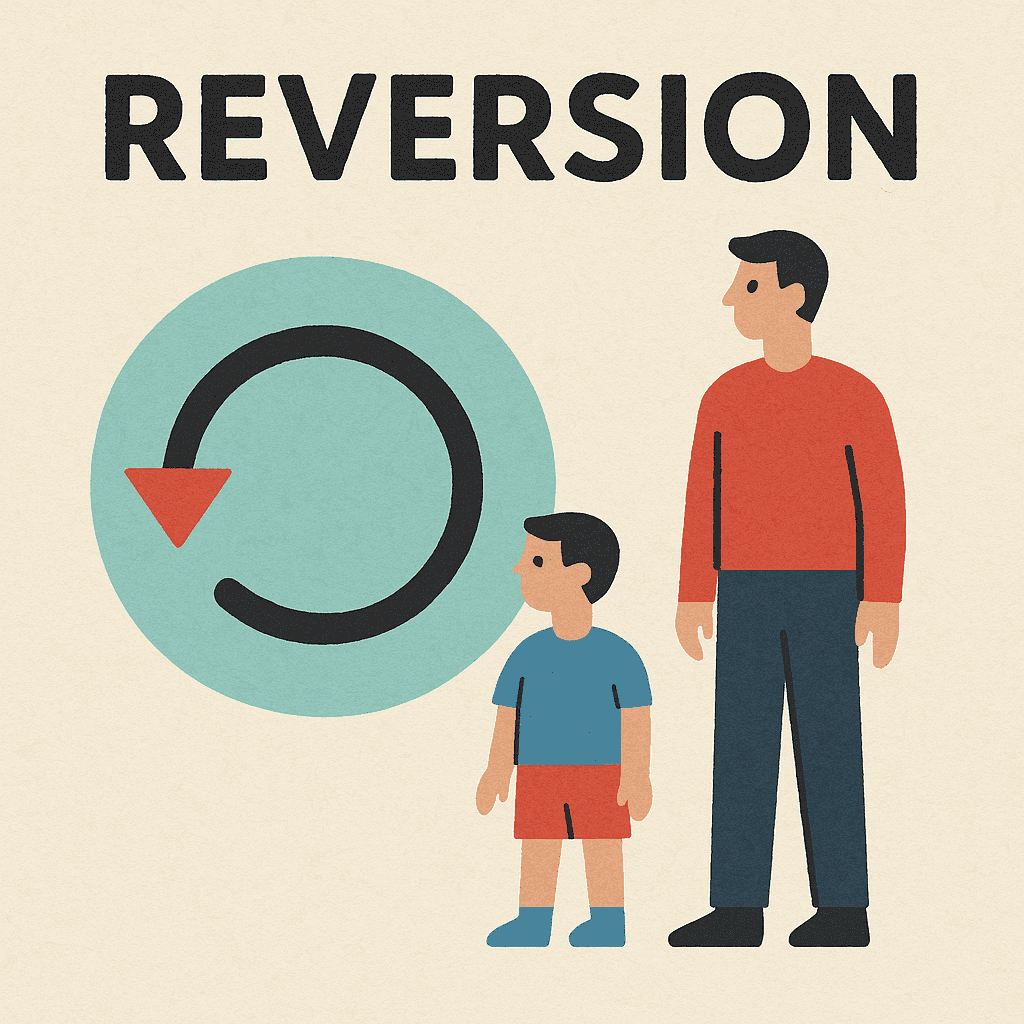Meaning
“Reversion” means a return to a previous state, condition, or behavior. It can also mean the right to possess property again after a temporary ownership ends in legal or financial contexts.
Grammar and Usage
-
Part of speech: noun
-
Countable/Uncountable: countable or uncountable depending on context
-
Common structures:
- a reversion to + noun (e.g., a reversion to old habits)
- reversion of property (in law)
Example usages:
- a reversion to childhood behavior
- a reversion to traditional methods
- the reversion of ownership rights
Common Phrases
- reversion to the mean – a statistical concept meaning values tend to move back toward the average.
- reversion clause – a legal term defining when property ownership returns to the original owner.
- genetic reversion – a biological term meaning a gene returns to its previous form.
Collocations
- reversion to tradition
- reversion to normal
- reversion to old values
- reversion of control
- reversion clause
Examples
- The country’s policies show a reversion to more conservative ideas.
- After years of progress, there was a reversion to outdated technology.
- The scientist explained the reversion to the mean in stock prices.
- The company’s management saw a reversion of control after the merger ended.
- His sudden interest in toys seemed like a reversion to childhood.
- Property laws ensured the reversion of ownership to the landlord after the lease expired.
- Their new policy marks a reversion to stricter rules.
- A reversion to manual labor was necessary when the machines failed.
Synonyms or Related
- return
- relapse
- regression
- backslide
- recurrence
Antonym
- progression
- advancement
- improvement
- development
